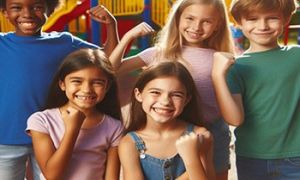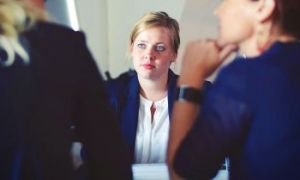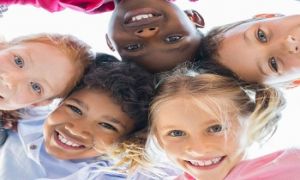

The Early Years Learning Framework (EYLF) guides how we document, plan, and reflect on children’s learning in Australia. But with time pressures, ratio demands, and competing priorities, educators need tools that make framework integration achievable and empowering. This cheat sheet distills key EYLF elements into practical prompts and linking keywords—so teams can streamline observation cycles, make meaningful outcome connections, and stay child-focused every step of the way.
In early childhood education, observation and planning cycles are meant to illuminate learning—not drown educators in endless paperwork. Yet for many services, these cycles have become overwhelming, rigid, and detached from everyday practice. The solution isn’t to lower standards but to design systems that reflect real moments, empower educator voice, and prioritize children's growth without burning out the people guiding it.
A “Look-For” guide is a practical tool used by educational leaders and mentors to identify and reflect on key indicators of quality practice during observations, walkthroughs, or self-assessments. Think of it as a lens—it helps you focus on what matters most in a learning environment.
Here's a practical educator cheat sheet tailored for writing summative assessments in early childhood settings—designed to be clear, efficient, and aligned with EYLF outcomes. The following article provides information on Structuring Your Summary, Linking to EYLF Outcomes, Prompts to Get You Started, Expanded Prompt Starters by Theme, EYLF Outcome-Based Prompt Starters, Prompt Starters For Babies, Toddlers and Preschoolers, Tips For Writing and more.
A: In terms of best practice, not every single piece requires a long, formal reflection, but each should invite at least a moment of intentional consideration.
Here are some thoughtfully crafted critical reflection prompts to help you explore and strengthen relationships with children, aligned with Quality Area 5 of the NQS.
Here’s a thoughtful set of critical reflection questions you can use to evaluate and enrich cultural displays in your service.
The following provides practical examples of critical reflections in early childhood education, drawn from real-world scenarios.
The following is a list of critical reflections that can help educators evaluate and continuously improve their outdoor environments in early childhood settings. These prompts are designed to inspire a thoughtful review of the outdoor environment, ensuring that it remains dynamic, inclusive, and conducive to holistic development.
The Early Years Learning Framework (EYLF) is Australia’s national framework for early childhood education, designed to support children’s learning from birth to five years old. It is not a strict curriculum but rather a guiding framework that helps educators create meaningful learning experiences. The following article provides information on: EYLF Explained, Understanding The EYLF Principles, Understanding The EYLF Practices , What is The Purpose Of The EYLF, Strategies To Implement EYLF and more.
 Here is the list of the EYLF Learning Outcomes that you can use as a guide or reference for your documentation and planning. The EYLF… Read More
Here is the list of the EYLF Learning Outcomes that you can use as a guide or reference for your documentation and planning. The EYLF… Read More
 The EYLF is a guide which consists of Principles, Practices and 5 main Learning Outcomes along with each of their sub outcomes, based on identity,… Read More
The EYLF is a guide which consists of Principles, Practices and 5 main Learning Outcomes along with each of their sub outcomes, based on identity,… Read More
 This is a guide on How to Write a Learning Story. It provides information on What Is A Learning Story, Writing A Learning Story, Sample… Read More
This is a guide on How to Write a Learning Story. It provides information on What Is A Learning Story, Writing A Learning Story, Sample… Read More
 One of the most important types of documentation methods that educators needs to be familiar with are “observations”. Observations are crucial for all early childhood… Read More
One of the most important types of documentation methods that educators needs to be familiar with are “observations”. Observations are crucial for all early childhood… Read More
 To support children achieve learning outcomes from the EYLF Framework, the following list gives educators examples of how to promote children's learning in each individual… Read More
To support children achieve learning outcomes from the EYLF Framework, the following list gives educators examples of how to promote children's learning in each individual… Read More
 Reflective practice is learning from everyday situations and issues and concerns that arise which form part of our daily routine while working in an early… Read More
Reflective practice is learning from everyday situations and issues and concerns that arise which form part of our daily routine while working in an early… Read More
 Within Australia, Programming and Planning is reflected and supported by the Early Years Learning Framework. Educators within early childhood settings, use the EYLF to guide… Read More
Within Australia, Programming and Planning is reflected and supported by the Early Years Learning Framework. Educators within early childhood settings, use the EYLF to guide… Read More
 When observing children, it's important that we use a range of different observation methods from running records, learning stories to photographs and work samples. Using… Read More
When observing children, it's important that we use a range of different observation methods from running records, learning stories to photographs and work samples. Using… Read More
 This is a guide for educators on what to observe under each sub learning outcome from the EYLF Framework, when a child is engaged in… Read More
This is a guide for educators on what to observe under each sub learning outcome from the EYLF Framework, when a child is engaged in… Read More
 The Early Years Learning Framework describes the curriculum as “all the interactions, experiences, activities, routines and events, planned and unplanned, that occur in an environment… Read More
The Early Years Learning Framework describes the curriculum as “all the interactions, experiences, activities, routines and events, planned and unplanned, that occur in an environment… Read More

The "Health" theme introduces children to essential practices like washing hands, brushing teeth, and eating balanced...
See more...
When an Educator is not performing their tasks or responsibilities at best practice, these issues...
See more...
As an early childhood educator, you are entrusted with shaping children for the future. Creating...
See more...© 2009-2025 Aussie Childcare Network Pty Ltd. All Rights Reserved.

